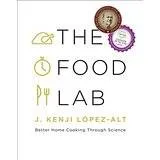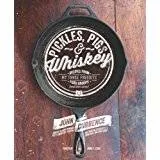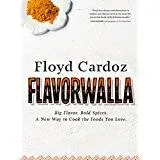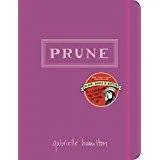
Cookbooks I’ll Pass Down to My Kids
This content contains affiliate links. When you buy through these links, we may earn an affiliate commission.
I understand that the Joy of Cooking is a traditional text stretching through generations. It was passed down to my mother, who eventually bought another one for herself when her grandmother’s started to wear out. It is a tradition to see trails of egg white across the back cover, or tomato sauce over the corner of three pages. But, I’m not sure I can sum up my hereditary cooking life with just the Joy of Cooking. I’m going to pass down other books–books that have let me step out of the expectations of generations.
I understand that lots of people pass along Julia Child’s cookbooks too. I get it, though this one was not one that my family focused on. Instead, I’ve discovered a different path. And, of course, I want my kids to be aware of many cooking paths. Not just mine. And not just Julia Childs’. But, I also want them to understand where I came from as a cook. It’s important that I ask what books have had the most influence over my cooking. What books are making my eating life more complex?
Here we go. My children will receive:
 The Food Lab by J. Kenji López-Alt is somehow so fantastically unique, I read it initially like a book. Then I tested it out. The complexities of this one is in the detailed approach to dishes. So, the details of egg freshness is just ridiculously useful. It’s also important to move into the world of cooking with meticulousness as a goal, and López-Alt certainly encourages this.
The Food Lab by J. Kenji López-Alt is somehow so fantastically unique, I read it initially like a book. Then I tested it out. The complexities of this one is in the detailed approach to dishes. So, the details of egg freshness is just ridiculously useful. It’s also important to move into the world of cooking with meticulousness as a goal, and López-Alt certainly encourages this.
 Pickles, Pigs and Whiskey by John Currence is such a directly helpful and complex book of Southern cooking. You never really forget though which recipe was your first successful stock. His was it. I love the culture that’s emulated here: happy people, pig bodies ready for butchering, families and cook staff. You just can’t get a better image of the restaurant life.
Pickles, Pigs and Whiskey by John Currence is such a directly helpful and complex book of Southern cooking. You never really forget though which recipe was your first successful stock. His was it. I love the culture that’s emulated here: happy people, pig bodies ready for butchering, families and cook staff. You just can’t get a better image of the restaurant life.
 Then there’s Floyd Cardoz’s Flavorwalla: Big Flavor. Bold Spices. I always consider cooking outside of your own culture like recognizing the difference between two dimensional and three dimensional sight. I know this sounds a little extreme, but this books supports the complexities of spices and approaches it with such clarity. I got a spice grinder for this. This book for me is all about exploring what I haven’t yet tackled and I’m ready to start.
Gabrielle Hamilton’s
Then there’s Floyd Cardoz’s Flavorwalla: Big Flavor. Bold Spices. I always consider cooking outside of your own culture like recognizing the difference between two dimensional and three dimensional sight. I know this sounds a little extreme, but this books supports the complexities of spices and approaches it with such clarity. I got a spice grinder for this. This book for me is all about exploring what I haven’t yet tackled and I’m ready to start.
Gabrielle Hamilton’s  Prune. When my husband and I went to Prune, we walked away still tasting sweet breads and lemon gelatin dessert, and we didn’t feel like the same people who went in. This is an experience I want my kid to understand. There are some cookbooks inherently linked to experience and this is an important one for me. Hamilton’s sensible, yet luxurious approach to food is obvious from the beginning.
So, clearly, cookbooks for me can influence your personality. And then part of that personality can be passed downward. What cookbook will you insure passes your personality on?
Prune. When my husband and I went to Prune, we walked away still tasting sweet breads and lemon gelatin dessert, and we didn’t feel like the same people who went in. This is an experience I want my kid to understand. There are some cookbooks inherently linked to experience and this is an important one for me. Hamilton’s sensible, yet luxurious approach to food is obvious from the beginning.
So, clearly, cookbooks for me can influence your personality. And then part of that personality can be passed downward. What cookbook will you insure passes your personality on?
 The Food Lab by J. Kenji López-Alt is somehow so fantastically unique, I read it initially like a book. Then I tested it out. The complexities of this one is in the detailed approach to dishes. So, the details of egg freshness is just ridiculously useful. It’s also important to move into the world of cooking with meticulousness as a goal, and López-Alt certainly encourages this.
The Food Lab by J. Kenji López-Alt is somehow so fantastically unique, I read it initially like a book. Then I tested it out. The complexities of this one is in the detailed approach to dishes. So, the details of egg freshness is just ridiculously useful. It’s also important to move into the world of cooking with meticulousness as a goal, and López-Alt certainly encourages this.
 Pickles, Pigs and Whiskey by John Currence is such a directly helpful and complex book of Southern cooking. You never really forget though which recipe was your first successful stock. His was it. I love the culture that’s emulated here: happy people, pig bodies ready for butchering, families and cook staff. You just can’t get a better image of the restaurant life.
Pickles, Pigs and Whiskey by John Currence is such a directly helpful and complex book of Southern cooking. You never really forget though which recipe was your first successful stock. His was it. I love the culture that’s emulated here: happy people, pig bodies ready for butchering, families and cook staff. You just can’t get a better image of the restaurant life.
 Then there’s Floyd Cardoz’s Flavorwalla: Big Flavor. Bold Spices. I always consider cooking outside of your own culture like recognizing the difference between two dimensional and three dimensional sight. I know this sounds a little extreme, but this books supports the complexities of spices and approaches it with such clarity. I got a spice grinder for this. This book for me is all about exploring what I haven’t yet tackled and I’m ready to start.
Gabrielle Hamilton’s
Then there’s Floyd Cardoz’s Flavorwalla: Big Flavor. Bold Spices. I always consider cooking outside of your own culture like recognizing the difference between two dimensional and three dimensional sight. I know this sounds a little extreme, but this books supports the complexities of spices and approaches it with such clarity. I got a spice grinder for this. This book for me is all about exploring what I haven’t yet tackled and I’m ready to start.
Gabrielle Hamilton’s  Prune. When my husband and I went to Prune, we walked away still tasting sweet breads and lemon gelatin dessert, and we didn’t feel like the same people who went in. This is an experience I want my kid to understand. There are some cookbooks inherently linked to experience and this is an important one for me. Hamilton’s sensible, yet luxurious approach to food is obvious from the beginning.
So, clearly, cookbooks for me can influence your personality. And then part of that personality can be passed downward. What cookbook will you insure passes your personality on?
Prune. When my husband and I went to Prune, we walked away still tasting sweet breads and lemon gelatin dessert, and we didn’t feel like the same people who went in. This is an experience I want my kid to understand. There are some cookbooks inherently linked to experience and this is an important one for me. Hamilton’s sensible, yet luxurious approach to food is obvious from the beginning.
So, clearly, cookbooks for me can influence your personality. And then part of that personality can be passed downward. What cookbook will you insure passes your personality on?



